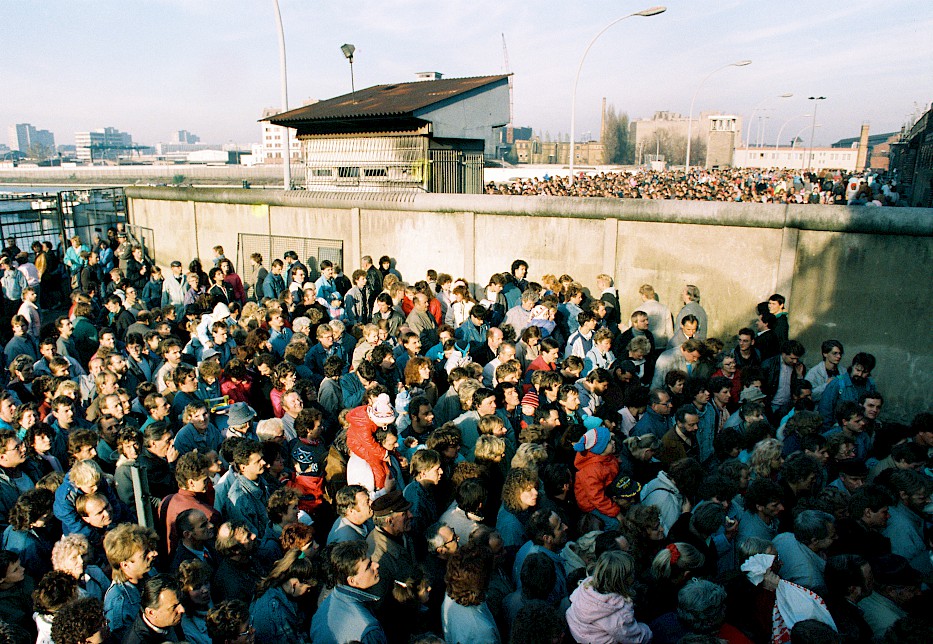1990
– 2000
In the weeks following the fall of the Wall on 9 November 1989 Berlin was filled with euphoria. Later, the exuberance became mixed with concern about the future. The opening of the Wall meant the end of the dictatorship in the GDR. In many areas of life, people could act, decide, and have a say more freely. But unification also brought many sudden changes. Those who had found their way in the GDR now lost their home country. And even those who were glad to see the end of the GDR needed to completely readjust.
"It took me 15 years to feel I had my feet on the ground again."

The artist behind the famous Trabi painting in the East Side Gallery, Birgit Kinder, had always dreamed of making a living from painting in the GDR. In 1987 she had just completed her first commissions alongside her regular job when the Wall fell, and everything changed. She seized the opportunity to realise her dream and become self-employed. Today she is still making a living from wall and facade painting.
"To me it was like living in paradise!"
Ursula Wünsch painted a picture in the East Side Gallery that wished Frieden für alles ( Peace for Everything). She had had her dream job in the GDR, designing toys and games for children and adults. Her designs were also in demand in West Germany and other countries. She was permitted to travel widely for her job. In 1990, this life came to an end. She lost her home, the GDR, and her clientele. Even today, Ursula Wünsch feels like a stranger in an occupied country.
"I live in an occupied country."
This painting by West Berlin artist Rainer Jehle shows a zipper opening to partially reveal the words Wohlstand (prosperity), Freiheit (freedom), and Sicherheit (security). With the visible lettering ohlstand reihe ich, (from Wohlstand Freiheit Sicherheit), the artist was alluding to the conflicting political systems in East and West Germany.